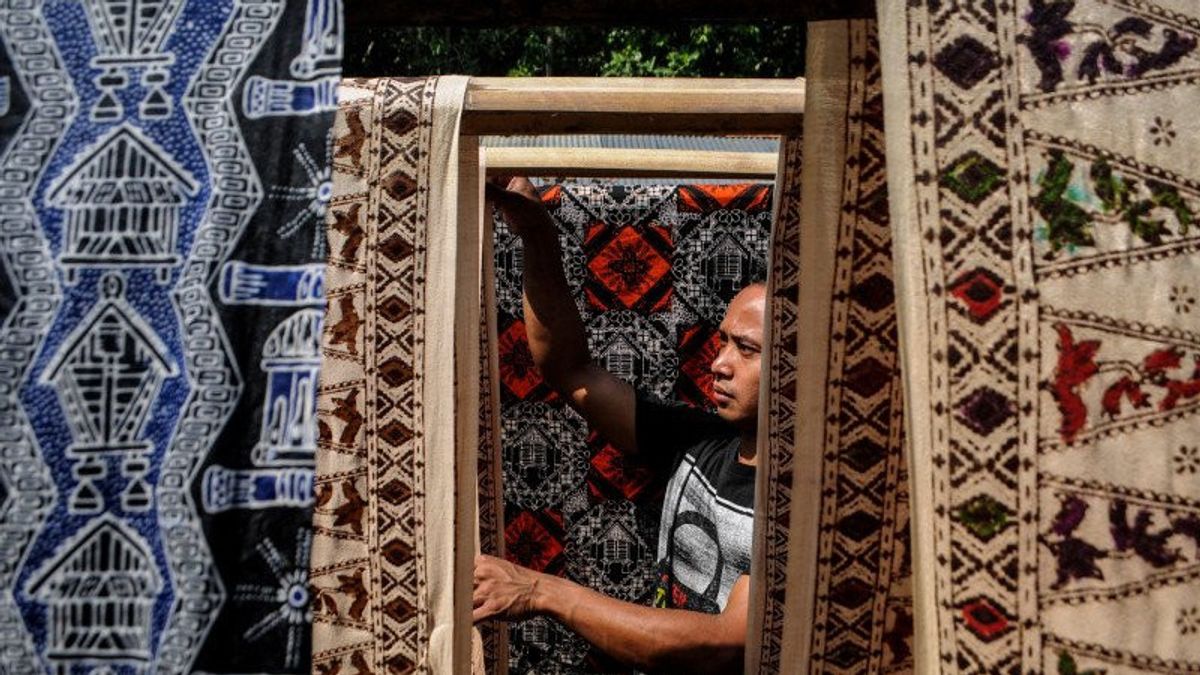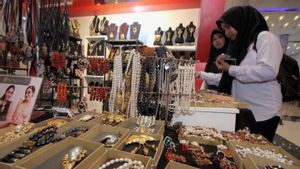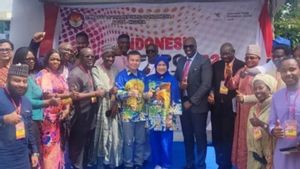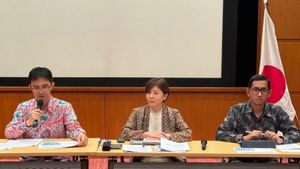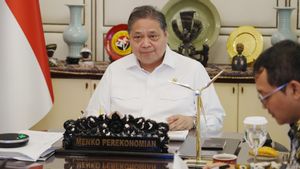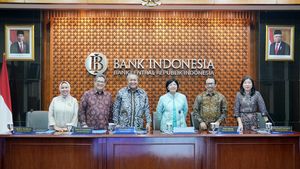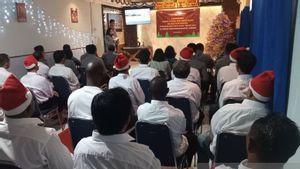JAKARTA - The government was asked to ban imports of products based on the nation's culture. The examples are batik, songket, weaving, and others.
Deputy Chairperson of the Indonesian House of Representatives for Industry and Development Coordination (Korinbang), Rachmat Gobel, said that protecting, strengthening, and empowering MSMEs, which are also involved in the production of culture-based products, has strategic significance for the national economy and national resilience.
"Culture-based economy always contains our cultural philosophy and it is passed down from generation to generation. Its history is very long. If this culture-based economy becomes extinct, we will lose our footing," said Rachmat Gobel, quoting Antara.
Rachmat Gobel is worried that if imports of culture-based products are allowed, such as imports of batik, then in the future the batik industry will become extinct. Then future generations can no longer make batik and batik becomes something foreign.
"We must not repeat the mistake in the rattan case because we opened the rattan export randomly and shut down most of the national rattan industry," said the former Minister of Trade.
He mentioned a number of reasons, namely MSMEs absorb a very large workforce. Second, the number of MSMEs is very large. Third, MSME products have a very large local content.
SEE ALSO:
Fourth, MSMEs are the main national pillar in dealing with various national crises, and fifth, many MSME products are manifestations of national culture such as batik, handicraft, weaving, songket, herbal medicine, and so on. In addition, the MSME base is in the village so it is at the grassroots.
Gobel also said that he had met with the Minister of Cooperatives and SMEs Teten Masduki a few days ago to discuss various matters including the issue of imported garments and their impact on the household and small-scale garment industries. In addition, it is also about the development of local culture-based herbal products such as herbs and phytopharmaca.
Both of them also discussed the issue of capital for MSMEs by forming cooperatives. "In order for MSMEs to be strong, they must unite in a cooperative container," he said.
The English, Chinese, Japanese, Arabic, and French versions are automatically generated by the AI. So there may still be inaccuracies in translating, please always see Indonesian as our main language. (system supported by DigitalSiber.id)
